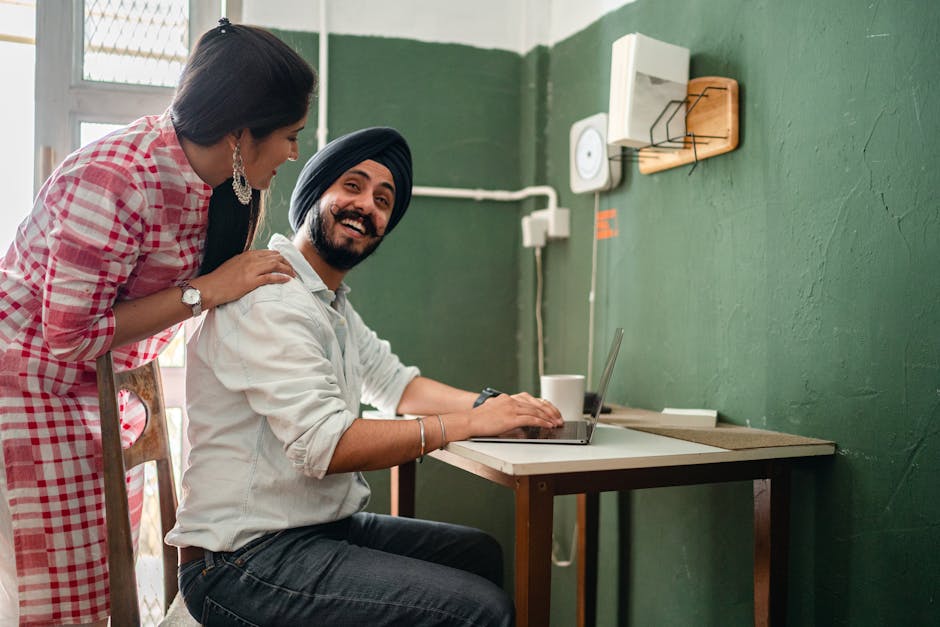It’s one of those nights. You’re scrolling, the blue light of your phone painting your face in the dark. The weight of something heavy sits on your chest a worry about a family member, a nerve-wracking job interview tomorrow, or just that general feeling of being overwhelmed. You want to reach out. You want to ask for prayer. But typing the words feels so… weird. The glowing screen is a strange mix of your cousin’s vacation photos, angry political talk and somehow a video of a cat playing a tiny piano. Putting something so personal out there feels like a big step. But it is a step that many people are taking, and it’s okay for you to take it too. This is about how you can do that in 2025 without feeling awkward or overexposed.
Why Asking for Prayer Online Feels So Strange (But Isn’t)
Let’s just admit it, being vulnerable is hard. It’s even harder on social media platforms that normally are for showing off our best moments. You post the perfect sunset picture not the argument you had right before it.
You share the job promotion news not the weeks of anxiety that led up to it. So, asking for prayer flips that whole idea on its head. It’s admitting things aren’t perfect.
And that’s okay. It’s more than okay.
Think of it this way: your social media is your community. For some, it’s a closer community than the people who live on their street. It is a place where people can gather, and support for each other is something that happens there.
It’s basically the modern version of putting a note on the church bulletin board or mentioning a need in a small group. It’s just that your bulletin board is now global, and your small group might include your aunt, your boss and that guy you met once at a conference.
Finding Your Voice: How Much Info is Too Much Info?
The biggest hurdle is often figuring out what to actually say. You don’t want to give away too much information but you want people to know how to pray. Generally you have a few ways you can go. It all depends on your comfort level.
The Vague and Mysterious Post
This is for when you need support but you’re not ready or able to share the details. It’s perfectly fine to do this. Your privacy matters most.
This type of post respects your own boundaries. It lets people in just a little bit, without giving away a story that isn’t yours to tell or that you aren’t ready to talk about.
Example:
“Hey friends, could you spare a moment to keep me and my family in your prayers this week? We are going through some things and could really use the support. Thank you.”
The Just-Enough-Detail Post
This is probably the most common type of prayer request. You give a little context so people can direct their prayers a bit more specifically.
This lets people feel more connected to your situation. It gives them a name or a situation to focus on which can make them feel more involved in helping.
Example:
“Asking for prayers for my mom, Susan. She’s having a procedure at the hospital tomorrow morning and we are all hoping for a smooth process and quick recovery.”
The Full Story Post (Handle With Care)
Sometimes, you need to just let it all out. Sharing the whole story can be a great relief and can bring in a huge wave of support from people who might have gone through something similar.
But be careful. Sharing a lot of detail opens you up to a lot of comments, and maybe even some advice you didn’t ask for. Make sure you are in a good mental space to handle the responses before you post it all.
Example:
“It’s hard to type this, but I lost my job today. The company is downsizing and my position was eliminated. I’m feeling pretty lost and scared about what’s next. Praying for peace, and for clarity on my next steps.”
Real-World Examples for Different Situations
Life throws all sorts of things at us. Your request for prayer will change depending on the situation. Here are some templates you can kind of copy and paste or change to fit your own life.
For a Health Concern (Yourself): “Hey everyone, I haven’t been feeling my best lately and I have some tests coming up on Wednesday. Would appreciate any prayers or good thoughts you could send my way for answers and for peace in the waiting.”
For a Health Concern (Someone Else): “Asking for prayer for my good friend’s son, little Leo. He’s a tough kid but he’s been in and out of the hospital with asthma. Praying for his lungs to get stronger.”
For a Big Life Decision: “I have a final interview for a job tomorrow morning that could be a really big move for my family. Praying for clear words and for the right doors to open (and the wrong ones to close!).”
For Mental and Emotional Struggles: “Today is just a hard day. Feeling a lot of anxiety and could really use some prayers for a sense of calm to get through the day. Thanks for being my community.”
For Grieving or Loss: “My heart is hurting as we had to say goodbye to our sweet dog, Buster, today. He was a part of our family for 14 years. We’d appreciate prayers as we navigate this sadness.”
For Something You Can’t Name: “Friends, I have an unspoken prayer request that is weighing heavily on me. God knows the details. Thank you for your support.”
So, What Happens After You Post?
You did it. You hit “post.” The request is out there. Now what? The first thing to remember is that you don’t owe anyone a play-by-play update.
You might get a lot of comments and messages. People mean well. A simple “like” on their comment or a single, general comment like “Thank you all so much for the prayers, it means the world to us” is more than enough.
Don’t feel the pressure to reply to every single person individually unless you want to. You’re the one going through something. Conserving your emotional energy is totally fine.
It can be really nice to post an update later on. Whether the news is good or not as good as you hoped, letting people know what happened closes the loop. It also shows them that their prayers mattered and that you appreciated them thinking of you.
—
FAQs About Asking for Prayer Online
1. Is it weird to ask for prayers if I’m not super religious or don’t go to church?
Not at all. Prayer and positive energy are for everyone. You can phrase it in a way that feels right for you. Try something like, “Hoping you can send some good vibes/positive thoughts my way for a situation I’m dealing with.” People will understand what you mean.
2. What if I post a prayer request and almost no one responds?
First, don’t feel bad. Social media algorithms are strange. Many people who saw your post and prayed for you might not have commented or hit “like.” A lack of online engagement does not mean a lack of care. Your request was still seen.
3. How can I ask for prayer for a friend without sharing their private business?
This is a good question. The best rule is to ask them for permission first. Just a quick text: “Hey, I was thinking of you and was wondering if it would be okay for me to ask some friends to pray for your situation?” If they say yes, keep it as vague as they want you to.
4. Should I use a picture with my prayer request?
A picture can sometimes help your post get seen by more people. A simple, calming picture of a candle, a sunrise, or just a plain color block with text on it can work well. It’s best to avoid using a photo that is too personal or distressing unless you are very comfortable with it.
5. What if people start giving me unsolicited advice in the comments?
This happens a lot. People want to help, and they often think that means offering solutions. It’s okay to ignore it. You can also have a simple reply ready, like “Thank you for the suggestion, right now we are just asking for prayer.” That normally is a gentle way to set a boundary.
Key Takeaways
It’s Okay to Be Vulnerable: Asking for help is a sign of strength, not weakness. Your online space can be a genuine community of support.
You Control the Narrative: Share only what you are comfortable sharing. Whether it’s a vague request or the full story, the choice is yours.
Authenticity Matters More Than Polish: You don’t need to find the “perfect” words. Just speak from the heart. People respond to realness.
Don’t Feel Pressure to Perform: After you post, your only job is to receive the support. You don’t need to reply to every single comment to show you’re grateful.
Prayer is a Powerful Connector: Asking for prayer is a way to invite people into your life in a meaningful way, building deeper connections than just a “like” on a photo.



